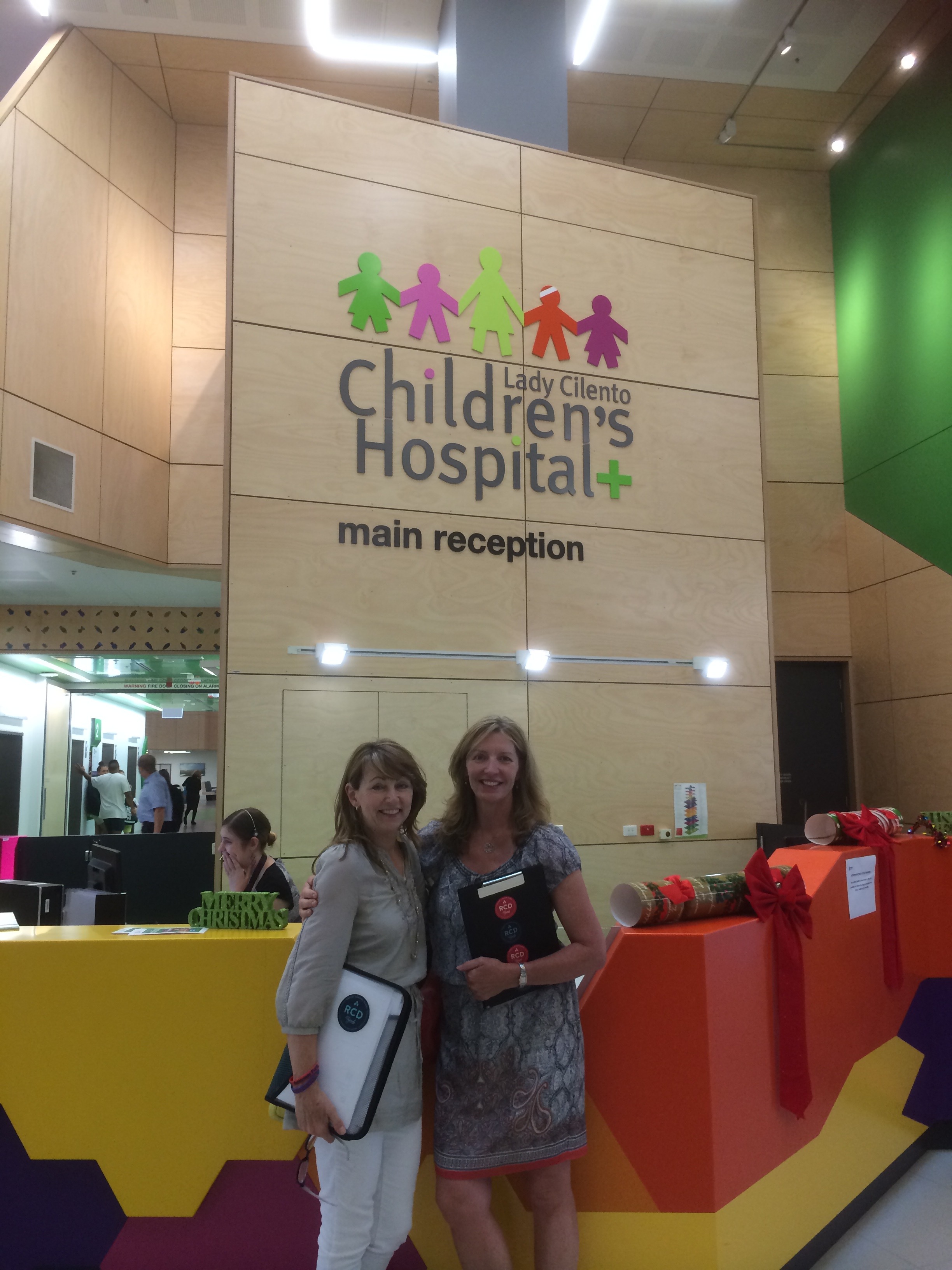
Queensland Reconnaissance: Expanding the Collaborative
Hope. It is just as important to us as Research, Care, and Development. Hope that we can recover, prevent, and cure. Hope seeded in the groundbreaking research being done in Australia and around the world.
This hope inspired the recent trip to Brisbane headed by our Director Liz Dawes and Research Liaison Celia Williams.
We left with there clear goals:
- Learn more about the brain cancer research being done around Australia
- Discover new areas where we can effectively donate our funds
- Communicate this information to our donors, our sponsors, and most importantly, the children we support
Over three days we had several meetings scheduled with prominent figures in paediatric brain cancer research, as well as one with a special friend of the RCD Fund.
We first met with Professor Bryan Day and Prof Brett Stringer at the Queensland Institute of Medical Research Berghofer (QIMR). They have been working on a cancer protein Eph A3 for several years with some very promising results. Such results have lead to a clinical trial on a new antibody therapy that has already been validated in leukemia. Bryan and Brett have shown positive responses in laboratory models of glioblastoma brain tumours, which they call this repurposing. It is in essence a quicker way to get brain cancer patients on promising new therapies – Awesome!
Before we left, Prof. Bryan left us with some valuable advice. He encouraged us to strongly voice our preference to researchers about what we want out funding to be used for as not all clinical trials are created equal. For example, the ependymoma, the tumour Connor had, is still in desperate need of basic molecular profiling. Therefore it is up to us to for an interdependent relationship with researchers, where we influence the direction as much as they do. This is done in the hope that we can develop more scientists with paediatric expertise – a set of skills that are rare in Australia… for now.
Our next meeting was in the brand new Lady Cilento Children’s Hospital with Prof. Ross Pinkerton and paediatric oncologist Dr. Chris Fraser. Dr. Chris directs the Queensland Children’s Cancer Services and chairs the organization that coordinates children’s cancer trials in Aus and NZ. We had an intriguing discussion about the process of clinical trials (which we might add are thoroughly more complex than we thought!) and how to effectively direct our funds.
We must also add how impressive Lady Cilento is – a bright, contemporary building, similar in many ways to the Royal Children’s in Melbourne (albeit without the Meerkats or an aquarium). However, it features an outdoor play area where the children’s pets from home can come and visit – We love that idea!
Our last official meeting was with geneticist and the director of the Institute for Molecular Bioscience Prof. Brandon Wainwright at the University of Queensland. Prof. Brandon works directly on an internationally acclaimed research project on medulloblastoma, the most common type of brain tumour. We discussed some of the recent advantages and breakthroughs, including the anatomy of cancer cells.
Prof. Brandon also shed light on the Translational Research Institute. Their researchers are well placed to translate their lab work to real treatments as they have the capability to manufacture on site. These treatments are then used for clinical trials in the Princess Alexander Hospital next door.
This is a true example of “bench to bedside research” where laboratory scientists work alongside the medical staff to bring new treatments directly to the patient.
If there was one thing we were to take away from these meetings, it was that there are some brilliant people working as hard as they can to beat this ugly disease. However, they need help. They need reinforcements. They need more researchers, more support, more funding. That is what makes the work of the RCD Fund so crucial to the process. As Prof. Bryan said, we must influence the research, so as to influence the researchers. Research saves lives. Research takes time.
Our last meeting was perhaps our most important. It was with Wyatt, one of our music therapy patients, and his mum, Kellie. Wyatt was diagnosed with an ependymoma just before his first birthday. Following radiation therapy and the removal of two tumors, Wyatt is now as lively, chatty, and playful as any two year old. Kellie says that Wyatt has embraced the music therapy and is increasing his participation with each session. It reminded us just how important ‘care and development’ is to recovery.
Seeing Wyatt with his mum, listening to their story, and seeing his adorable smile only increased our resolve to keep pushing forward with RCD and accomplish everything we have set out to do. Everything we experienced in this trip says there is hope – we will see it through.